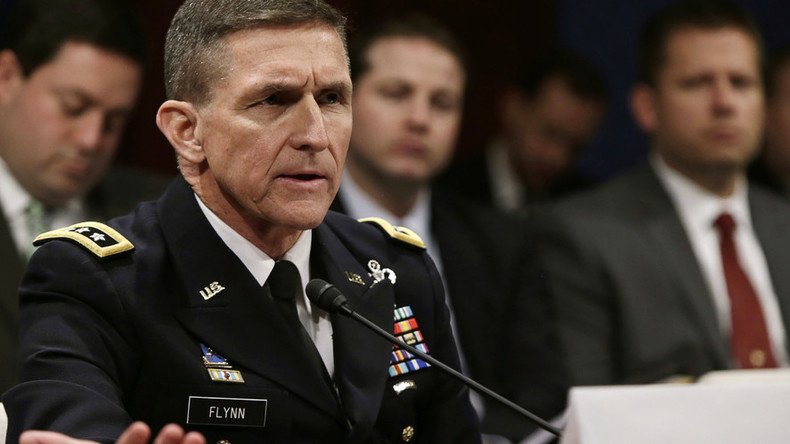US, Russia need to align strategies on fighting ISIS – Flynn

Islamic State has now become a global threat and the US and Russia need to clearly define the enemy using similar criteria and figure out how to defeat IS working together, the ex-director of the US Defense Intelligence Agency Michael Flynn told RT.
READ MORE: #RT10 conference on shape-shifting powers in today’s world
RT: The US-led coalition and Russia were all fighting ISIS. There is a real problem with the coalition and Russia working together and sharing intelligence. Wouldn’t it just be better for the battle against worldwide global terror if all sides would work together to defeat IS?
Michael Flynn: First of all, I absolutely agree with you. I think, what we have to do is all of us have to take a step back and really understand and clearly define this enemy that we are facing. Right now we have essentially the US strategy and we have a Russian strategy in the region that does not appear to be in line with each other. And I think we have to step back and try to figure out how do we align those.
We have IS that has gone beyond being a regional threat, and they are actually a global threat as we have seen recently in Europe, in Paris, we saw in the US in California. And I know that there have been direct threats inside of Russia as well. So one: we have to clearly define our enemy; we have to have similar criteria; and then we have to figure out how it is that we are going to defeat this enemy to the point where we can return the region to some sort of stable platform. Otherwise we’re going to be at this for a long time. When we play this sort of bully game against each other between the US and Russia, that is going to achieve nothing. It is going to achieve more conflict...
RT: Some say that the US is reluctant to work with Moscow in its campaign against ISIL. Is that fair to say, do you think?
MF: No, I don’t think it is fair. We’ve got to look at both sides here. ... Let’s be very honest with each other and let’s face it - this is an incredibly complex situation, and we have to have a sense of urgency. And I do think little things like sharing intelligence, working together, getting each other inside of our operation centers to begin to understand where are the military objectives, but we also have to have a different set of strategic objectives that actually become mutually supporting.
We have to look at this problem - as both a Sunni and a Shia problem, and we have to look at the components of both of those forms of the Islamic religion, and then we really have to dig deep down and begin to examine, where is this radicalization coming from. And that is going to have to be changed – we cannot continue to have the world look at Islam as a radical form of a political ideology, based on its religion. And I don’t think that the ‘moderate’ leaders of the Arab world, of the Muslim world - they don’t want that either. But they have to do more as well. So very complex ... and it is a situation where I really believe that the best way forward is for us to mutually agree that we have common interest and we’ve got to figure out how to work together, to achieve those common interests.
RT: ISIL’s numbers have actually doubled over the past one and a half years of this international coalition doing its work in Syria. What has gone wrong?
MF: We’re looking at potentially 80 countries that are represented inside of the foreign fighter component of the IS in Syria and Iraq too. So when we talk about our US-led coalition of 60 something countries and Russia sort of with... a group of countries: Russia, Syria, Iraq, Iran - the IS actually has a larger coalition. I think the numbers of foreign fighters right now, the numbers are probably 30,000 plus. And that has been that way actually for a while...
This is a global problem as much as it is a regional challenge. We’re going to have to figure out how is this idea - of this radical version of Islam, how is it promoted, and the influence that it gets in areas like social media – they leverage the information, domain, the digital age of information very, very effectively. That also has to have an international component to it in terms how do we stop that; how do we work together to defeat this idea – the way it’s spreading. When I look at that and think what countries they are from - and definitely from Russia, and definitely from the US. The numbers are different because I think of the geographic proximity. But still the problem is the same...
The statements, views and opinions expressed in this column are solely those of the author and do not necessarily represent those of RT.












